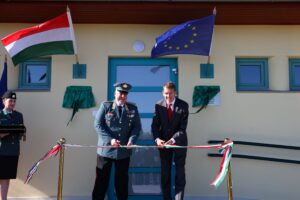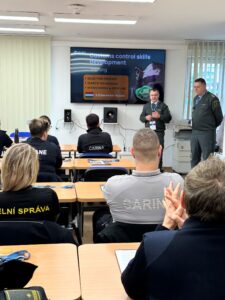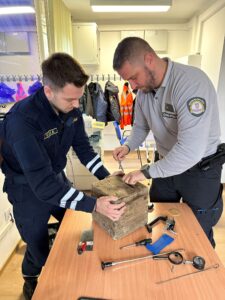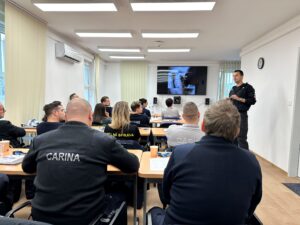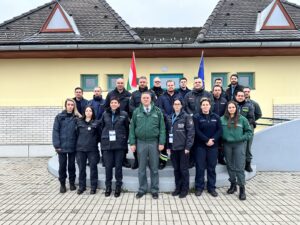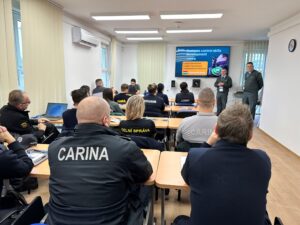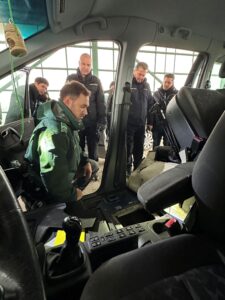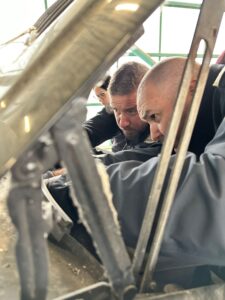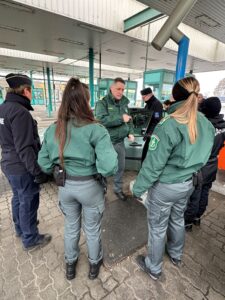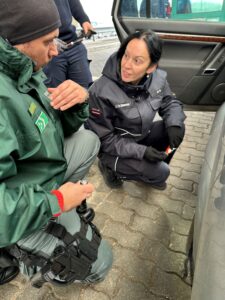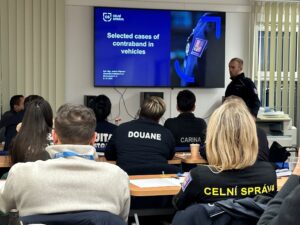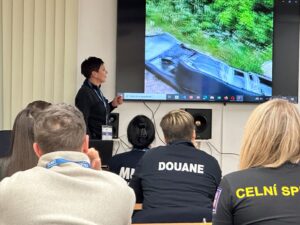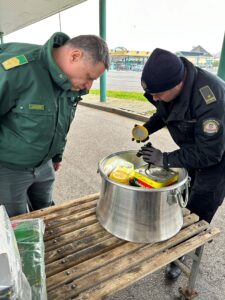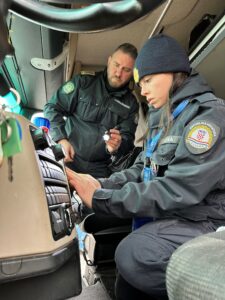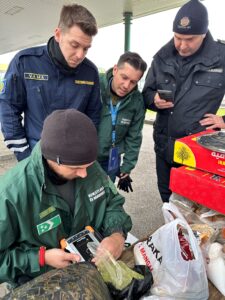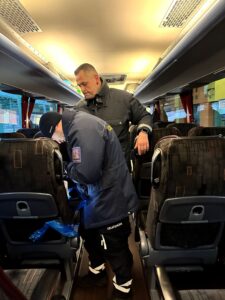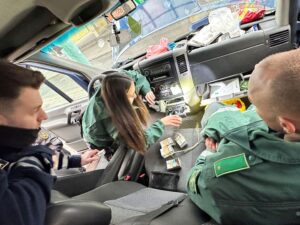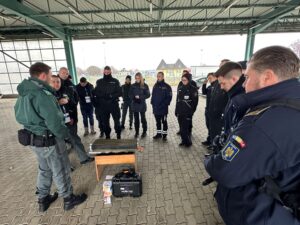„That was one of the best training we have ever had. We were so lucky to be here and learned so many practical things. Our job is practical so we will definitely use what we learned here”
– Steven and Britt from Belgium Customs shared their opinion about the training.
The training took place from 3-5 of December in Röszke and was organized in a newly opened CELBET Center of Expertise in Customs Control Skills Development localized on the BCP. In 2023 Mr. Kristof Bakai, Deputy Commissioner for Customs and International Affairs, started to warm up the renovation process and successfully the building of CoE was opened in September 2024.
Customs officers from: Austria, Belgium, Czech Republic, Croatia, Finland, Hungary, Latvia, Lithuania, Romania and Spain participated in the event.
Trainers started from the theoretical part which focused on the crucial issues in customs area:
- how does the decision making process look like
- motivation power
- how to be effective in predicting the future- local risk assessment and selection process
- Interviewing and profiling – what verifiable facts officer should be focused on and why non verbal communication is extremely crucial. –Did You know that: it is 93% of whole communication process !( 38% voice tone and 55 % body language). Only 7 % of communication is a verbal part !
- use of sensations in customs search: how to knock to detect,
- how to be safe during the fentanyl and other drugs inspection.
- safe and effective fuel tank control
- how to keep safe during the inspection of hybrid and electric cars
„If we understand ourselves, we will understand everything and everyone. Our main motivation should be to always strive for balance which means physical, mental and emotional stability”
-highlighted on first day trainer Tamas.
During practical part, which took place on the control lanes, trainees have been divided into 3 inspection groups: cars, buses and trucks. Each group rotated and changed the vehicles so that each officer had a chance to test the theory in a real life in a different mean of transport.
Training program was created by Training Team and the trainers: Tamas Toth-Borbely, Norbert Bencsik, Jeno Csaki. This time, Head of CELBET Andras Bartha and Risk Management team leader Peichin Ivanov, enriched the event by contributing as trainers in area of interviewing, non verbal communication and local risk management.
“Today’s reality reflects yesterday’s predictions, highlighting the need to forsee tomorrow’s challenges by understanding how local pieces interconnect to form the global picture”
– said during the presentation Peichin Ivanov, RM team leader.
On a last day of training, part of the time has been dedicated to the experience of CELBET Member States – participants shared their presentations with the most significant issues related to customs control on the EU external border and on the roads.
Any seizures results ?
Trainees detected several dozens packages of cigarettes and 4 bags of tobacco. But as Norbert, the trainer underlined:
„The variety of goods that can be found in Röszke BCP is quite large (drugs, weapons, amunition, dopes). Don’t focus on one thing, world is bigger than you think”.
Why Röszke BCP ?
Because CELBET and National Tax and Customs Administration of Hungary have established a unique training place: Center of Expertise on Customs Control Skills Development. This is one of the 7 CELBET Centers of Expertise where the trainings take place.
Röszke border crossing point is the biggest on the Hungarian- Serbian border strip. Nearly 140 customs officers secure the external EU border here in Röszke and with 2 stationary devices they x-ray 100% of trucks entering to Hungary.

The border traffic statistics on the graph are from the period: January -November 2024.
The most often used expressions in a feedback given on a last day of training were: open-mind, useful, too short, even more practice.
![]()


